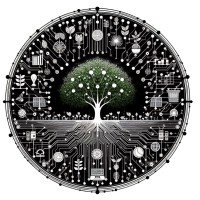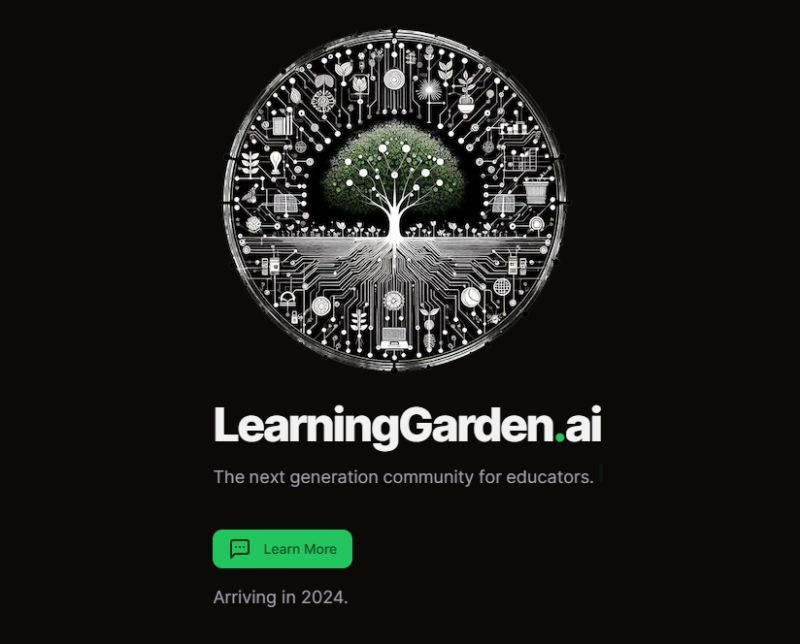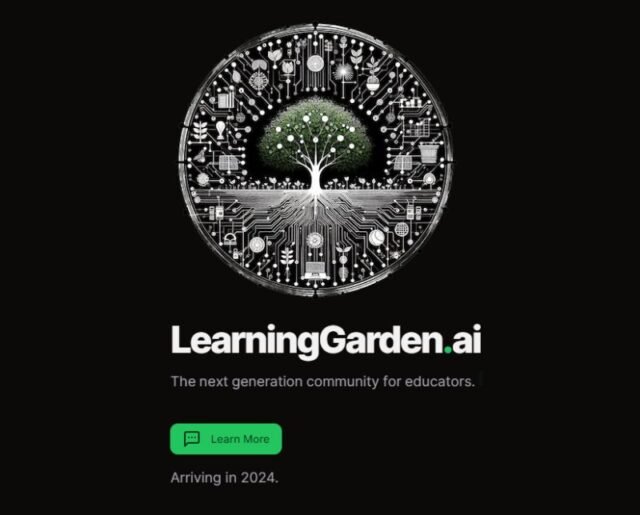In a period where technology is reshaping classrooms across the globe, a new platform has officially stepped into the spotlight. LearningGarden AI, developed by education-focused startup Educated AI, has now been launched to provide schools, teachers, and districts with a practical way to access shared knowledge, streamline administrative work, and improve lesson planning.
The platform is the brainchild of Andrew Kaiser, the founder and CEO of Educated AI, who also happens to be a retired school principal. After what he describes as a period of “stealth-ish” development, Kaiser announced the public launch of LearningGarden AI through a LinkedIn post that quickly caught the attention of educators and tech enthusiasts. His message was clear: this is more than another AI tool. Instead, it is a platform designed to empower educators with both practical workflows and creative possibilities, freeing them from the administrative burdens that often keep them away from what matters most—teaching and mentoring students.
Kaiser wrote: “The time has arrived. Coming out of the ‘stealth-ish’ development of LearningGarden AI. More than just tools, a platform for leaders to support growth, change, and people in your organisation.”
With that bold declaration, LearningGarden AI steps into an increasingly competitive market where artificial intelligence is being integrated into classrooms in many different ways. But what makes this launch significant is how teacher-focused the platform is, recognising the daily struggles educators face and offering specific, hands-on solutions.

Table of Contents
Practical Tools That Go Beyond Training Sessions
Unlike traditional professional development programmes that usually require workshops, courses, or offsite training, LearningGarden AI is designed for immediate use in real school settings. Teachers and administrators can log into the platform and quickly access resources or build their own systems without waiting for scheduled training days.
One of the standout features is called “Actions.” This tool allows educators to generate classroom and administrative content in seconds. For example, teachers can craft multilingual parent emails, school newsletters, or reports with ease. Instead of spending hours manually typing and editing, these tasks can now be automated, ensuring that communication remains clear, consistent, and culturally inclusive.
Another key element is “Gardens.” This feature serves as a shared space where effective workflows—called Designflows—are stored and reused. In practice, it means that once one teacher or administrator creates a useful lesson plan, implementation guide, or administrative process, it can be shared across an entire district. Others can then adopt, customise, or improve on it.
For schools and districts that often struggle with knowledge management, this is a game-changer. Teachers no longer need to reinvent the wheel every term or project. Instead, they can tap into a collective library of best practices, saving time while maintaining quality. This system also supports collaboration, as teachers can build and customise workflows together, ensuring that their work remains aligned with both curriculum standards and local school needs.
For Nigeria and other African countries where resource sharing is often hampered by distance, bureaucracy, or lack of consistent training, a platform like LearningGarden AI holds special promise. It could make it easier for teachers in remote areas to gain access to practical resources, eliminating the isolation that many educators still face.

Reducing Teacher Workload While Boosting Student Learning
One of the most pressing issues in education today is teacher workload. Across the United States, Nigeria, and much of the world, teachers spend countless hours on administrative work—time that could have been used to prepare lessons, give feedback, or engage with students.
Educated AI’s core mission, as reflected in the LearningGarden AI platform, is to automate routine tasks while enabling teachers to focus on what truly drives student achievement. By helping educators analyse student data, personalise instruction, and design guided learning systems, the platform encourages a shift from survival mode to strategic teaching.
Kaiser’s background as a school principal gives him first-hand insight into these challenges. He understands how much effort teachers put into balancing lesson plans, parent communications, and administrative forms—all while still trying to deliver engaging classroom experiences. With LearningGarden AI, those pain points are directly addressed.
For instance, teachers can use the system to quickly design curriculum maps or build lesson plans tailored to specific student needs. Instead of working late into the night preparing slides, handouts, or activity sheets, much of the foundational work can be automated. The result is not only less stress for teachers but also more personalised learning opportunities for students.
In a global context where student engagement and critical thinking are more valuable than rote memorisation, LearningGarden AI also supports educators in designing guided learning systems. These systems are structured to promote curiosity, problem-solving, and collaboration among students. For Nigerian schools trying to transition away from exam-driven learning to more holistic approaches, tools like this could help bridge the gap.

A Platform for Growth, Change, and the Future of Education
The launch of LearningGarden AI is not just about introducing another digital tool; it is about redefining how schools and districts think about collaboration, efficiency, and innovation. Kaiser’s choice of the word “garden” in the platform’s name is telling. Just as a garden requires nurturing, collaboration, and shared effort, so too does the educational system. Teachers and administrators planting “seeds” of knowledge and workflows in this garden can collectively cultivate stronger, more sustainable learning environments.
From a Nigerian perspective, where education challenges remain enormous—ranging from limited access to teaching materials to overstretched classrooms—this type of innovation offers a glimpse into what the future might look like. If adopted and adapted to local contexts, platforms like LearningGarden AI could support educators working under pressure while raising standards across the board.
It also reflects a broader global shift where artificial intelligence is moving from hype to hands-on utility. Instead of being presented as a futuristic possibility, AI is increasingly being integrated into the everyday tasks of schools and teachers. The fact that LearningGarden AI was developed by someone with direct classroom leadership experience further strengthens its credibility. It is not a Silicon Valley experiment detached from reality, but a tool shaped by real-world understanding of what teachers need.
Looking ahead, the success of LearningGarden AI will depend on how quickly schools embrace it, how effectively it integrates with existing systems, and how adaptable it proves to different educational settings. But one thing is clear: Kaiser’s platform has entered the conversation at a time when educators are hungry for practical support, and it has the potential to become a trusted companion in classrooms worldwide.
Join Our Social Media Channels:
WhatsApp: NaijaEyes
Facebook: NaijaEyes
Twitter: NaijaEyes
Instagram: NaijaEyes
TikTok: NaijaEyes





